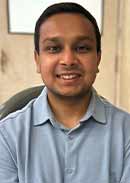Junior doctors at RG Kar Medical College and Hospital voiced their discontent after Monday’s Supreme Court hearing, presided over by a three-judge bench led by Chief Justice D.Y. Chandrachud, related to the rape and murder case of a trainee doctor as well as the alleged financial misconduct at the institution.
Earlier, they had said they would decide whether to resume their strike depending on what the West Bengal government informed the court about safety and security in hospitals.
This statement came after an alleged attack on doctors and nurses at Kolkata’s College of Medicine & Sagore Dutta Hospital by the family members of a deceased patient.
On Monday, the state sought additional time to improve the safety and security infrastructure in hospitals, including CCTV cameras installation and construction and renovation of toilets. The state said that it was trying to complete these works by October 15.
Dr Aniket Mahato, a leading face of the movement, told THE WEEK after the Supreme Court hearing, “The discussion about safety and security measures of the doctors in hospitals were satisfactory. But overall, we are not satisfied by how the hearing turned out.”
The junior doctors will hold a meeting to decide whether to resume their strike after ending it on September 20.
Also read
- 'We stood up to expectations': Kolkata CP after swift police probe leads to death sentence in fourth rape case since RG Kar incident
- RG Kar: Fund misusing allegations resurface against junior doctors after their website goes offline
- CBI yet to hand over all documents in RG Kar corruption case: Former principal tells HC
- RG Kar rape-murder case: Calcutta HC rejects Bengal govt's plea, accepts CBI's in tussle over Sanjay Roy’s death penalty
Senior advocate Rakesh Dwivedi, representing the State of West Bengal, informed a three-judge bench, which included Justices J.B. Pardiwala and Manoj Misra, that doctors had only partially resumed their duties, focusing solely on emergency and essential services, and were not attending to out-patient (OPD) and in-patient departments (IPD).
Senior advocate Indira Jaisingh, representing the doctors, refuted this claim, asserting that essential services include IPD and OPD. The court noted her statement and observed that the doctors are performing and shall perform duties, including in IPD and OPD.
Junior doctors, meanwhile, expressed their dissatisfaction about the absence of any updates from the CBI regarding the investigation. The central agency did submit a status report, but the specifics were not revealed. The apex court bench allowed the agency to proceed with the investigation, noting that significant leads had emerged.
Dr Debdut Bhadra of RG Kar Medical College and Hospital said to THE WEEK, “We still don’t know anything about the investigation. We are not sure if everyone has been arrested or not. In such a scenario how can we feel safe at our workplace?”
Senior advocate Karuna Nundy, representing the doctors, informed the Supreme Court that several individuals named in the CBI’s writ petition, accused of misconduct and covering up the crime, were still holding positions in the hospital.
Advocates Nundy and Jaisingh demanded that these individuals be either suspended or placed on leave. The state expressed its willingness to take appropriate action if the CBI provided preliminary information.


